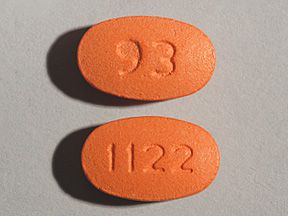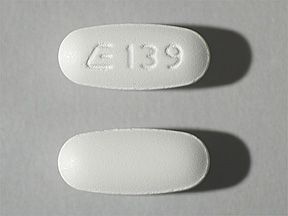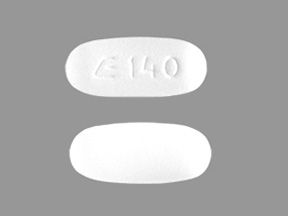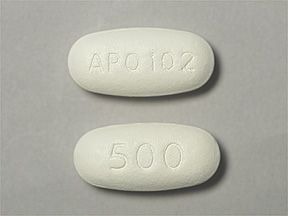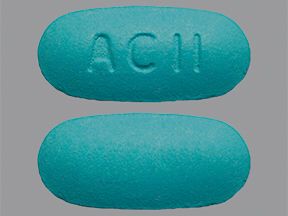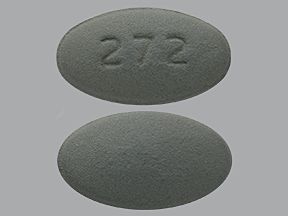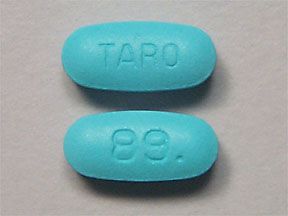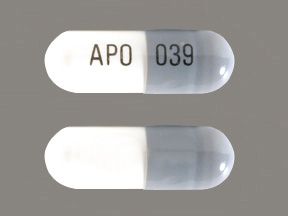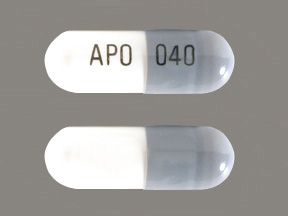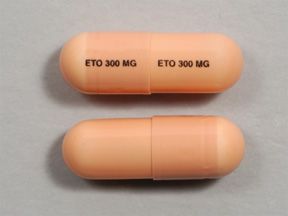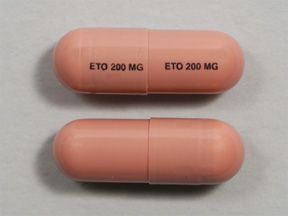Etodolac is a prescription drug used to treat short-term pain as well as long-term pain in arthritis. However, it has a Black Box warning, so you should use it carefully and with a doctor’s supervision.
Highlights for etodolac
- Etodolac oral tablet is only available as a generic drug.
- Etodolac is also available as an oral capsule.
- Etodolac is used to treat short-term pain and long-term joint pain in different types of arthritis.
FDA Warning: Heart risks and stomach problems
- This medication has a Black Box Warning. This is the most serious warning from the Food and Drug Administration (FDA). A black box warning alerts doctors and patients to potentially dangerous effects.
- This medication may increase your chances of having a blood clot, heart attack, heart failure, or stroke. Your risk may be higher if you’re taking it long term, at high doses, or if you already have heart problems or risk factors for heart disease, such as high blood pressure. Don’t use etodolac for pain before or after a major heart surgery known as coronary artery bypass graft. The medication may increase your risk of heart attack or stroke.
- Etodolac may increase your chances of serious stomach problems, which can lead to death. These include bleeding and peptic ulcers (small holes in the lining of your stomach or intestines). People aged 65 years or older have a greater chance for these severe stomach issues.
- May damage your liver: Your doctor may take a blood test to monitor your liver and make sure it’s safe for you to be on this drug.
- May damage your kidneys: This medication may damage your kidneys if you use it for a long time. If you already have serious kidney problems, you shouldn’t use this medication. It’s not known how it may affect kidneys that are already damaged.
- May worsen asthma: If you have asthma and have had an asthma attack or difficulties breathing while taking aspirin or other nonsteroidal anti-inflammatory drugs (NSAIDs), you shouldn’t take this medication. If you take this medication and you begin to have trouble breathing, get medical attention right away.
Etodolac oral tablet is a prescription drug that’s only available as a generic drug. It’s also available as an oral capsule.
Why it’s used
This drug is used to treat short-term pain, as well as long-term joint pain and inflammation in various types of arthritis.
Etodolac is approved to treat:
- osteoarthritis (immediate and extended-release forms)
- rheumatoid arthritis (immediate and extended-release forms)
- juvenile rheumatoid arthritis (extended-release form)
- short-term pain (immediate release form)
Only the extended-release form has been approved to treat children.
How it works
This medication belongs to a class of drugs called nonsteroidal anti-inflammatory drugs (NSAIDs). NSAIDs help reduce pain, inflammation, and fever.
It isn’t known how this medication works to decrease pain. It may help reduce swelling by lowering levels of prostaglandin, a hormone-like substance that usually causes inflammation.
Etodolac oral tablet does not cause drowsiness. However, it can cause other side effects.
More common side effects
The more common side effects that occur with etodolac include:
- nausea
- vomiting
- diarrhea or constipation
- stomach pain or ulcers
- indigestion
- gas
- dizziness
- headache
Serious side effects
If you experience any of these serious side effects, call your doctor right away. If your symptoms are potentially life threatening or if you think you’re experiencing a medical emergency, call 911
- heart attack or stroke, symptoms may include:
- chest pain
- shortness of breath
- weakness on one side of your body
- slurred speech
- kidney damage (if you use it for a long time)
- heart failure, symptoms may include:
- unusual weight gain
- swelling in your arms, legs, hands, or feet
- stomach problems, such as ulcers or bleeding, symptoms may include:
- stomach pain or upset stomach
- black tarry stools
- vomiting up blood
- liver problems, symptoms may include:
- yellowing of your skin or the whites of your eyes
- flu-like symptoms, such as body aches, headaches, fever, nausea, and vomiting
- tiredness
- pain in the upper part of your stomach
- itching
- skin reactions, symptoms may include:
- reddening, blistering, or peeling skin
- allergic reactions, symptoms may include:
- shortness of breath
- swelling of your face, lips, or throat
Disclaimer: Our goal is to provide you with the most relevant and current information. However, because drugs affect each person differently, we cannot guarantee that this information includes all possible side effects. This information is not a substitute for medical advice. Always discuss possible side effects with a healthcare provider who knows your medical history.
Etodolac oral tablet can interact with other medications, vitamins, or herbs you may be taking. An interaction is when a substance changes the way a drug works. This can be harmful or prevent the drug from working well.
To help avoid interactions, your doctor should manage all of your medications carefully. Be sure to tell your doctor about all medications, vitamins, or herbs you’re taking. To find out how this drug might interact with something else you’re taking, talk to your doctor or pharmacist.
Examples of drugs that can cause interactions with etodolac are listed below.
Arrhythmia drug
- digoxin
Taking etodolac and digoxin together may increase your risk of kidney damage.
Blood pressure drugs
- angiotensin-converting enzyme (ACE) inhibitors
Etodolac will decrease the blood pressure-lowering effects of these drugs.
Diuretics
- furosemide
- hydrochlorothiazide
Etodolac can reduce the diuretic effects of some diuretics.
Nonsteroidal anti-inflammatory drugs (NSAIDs)
Examples are:
- aspirin
- ketorolac
Etodolac is a nonsteroidal anti-inflammatory drug (NSAID). If you take etodolac with other NSAIDs, such as aspirin or ketorolac, your risk of stomach bleeding and ulcers increases.
Since aspirin and etodolac are similar medications, taking them together may increase your risk for side effects, such as stomach bleeding or ulcers.
Anticoagulant, blood thinner
- warfarin
Taking etodolac and warfarin together may increase your risk of stomach bleeding.
Disease-modifying antirheumatic drug
- methotrexate
Etodolac may prevent methotrexate from getting cleared from your body. This could lead to increased amounts of methotrexate in your blood and possible side effects.
Bipolar disorder drug
- lithium
Etodolac may cause amounts of lithium in your blood to increase to toxic levels. Symptoms may include tremors, excessive thirst, or confusion.
Transplant drug
- cyclosporine
Taking etodolac and cyclosporine together may increase your risk of kidney damage.
Disclaimer: Our goal is to provide you with the most relevant and current information. However, because drugs interact differently in each person, we cannot guarantee that this information includes all possible interactions. This information is not a substitute for medical advice. Always speak with your healthcare provider about possible interactions with all prescription drugs, vitamins, herbs and supplements, and over-the-counter drugs that you are taking.
Etodolac oral tablet comes with several warnings.
Allergy warning
This medication can cause a severe allergic reaction. Symptoms may include:
- trouble breathing
- swelling of your face or throat
- hives
Don’t take this medication if you’ve ever had an allergic reaction to etodolac, aspirin, or other NSAIDs. These include ibuprofen, naproxen, or meloxicam.
Alcohol interaction
Drinking alcohol when taking this medication can increase your risks of stomach bleeding and stomach ulcers.
Warnings for people with certain health conditions
For people with high blood pressure: This medication may cause you to develop high blood pressure. If you already have high blood pressure, it may worsen your condition or increase your chances of having a heart attack or stroke.
For people with heart failure: This medication may cause you to retain water, which can cause swelling in your arms, legs, hands, or feet. This may worsen your heart failure.
For people with kidney disease: This medication may cause damage to your kidneys if you use it for a long time. If you already have serious kidney problems, don’t use this medication. It isn’t known how it may affect damaged kidneys.
For people with asthma: If you have asthma and have had an asthma attack or difficulties breathing while taking aspirin or other nonsteroidal anti-inflammatory drugs (NSAIDs), you shouldn’t take this medication. If you take this medication and you begin to have trouble breathing, get medical attention right away.
Warnings for other groups
For pregnant women: Etodolac is a category C pregnancy drug. That means two things:
- Research in animals has shown adverse effects to the fetus when the mother takes the drug.
- There haven’t been enough studies done in humans to be certain how the drug might affect the fetus.
Do not use this medication if you’re in your third trimester of pregnancy. It can cause harm by affecting the heart and blood vessels of the fetus. Speak with your doctor if you’re pregnant or plan to become pregnant.
For women who are breastfeeding: It isn’t known if this medication passes through breast milk. If it does, it may cause side effects in a child who breastfeeds. Tell your doctor if you’re breastfeeding. You may need to decide whether to stop nursing or stop taking this medication.
For seniors: People aged 65 years or older should use caution when taking this medication. Your kidneys may not work as well, which could make it harder to remove this drug from your body. This increases your risk of side effects. Your doctor may monitor your kidneys regularly.
For children: It isn’t known if the immediate-release form of this medication is safe or effective in people younger than 18 years. It isn’t known if the extended-release form of this medication is safe or effective in people younger than 6 years.
This dosage information is for etodolac oral tablet. All possible dosages and forms may not be included here. Your dose, form, and how often you take it will depend on:
- your age
- the condition being treated
- how severe your condition is
- other medical conditions you have
- how you react to the first dose
Forms and strengths
Generic: etodolac
- Form: Immediate-release oral tablet
- Strengths: 400 mg and 500 mg
- Form: Extended-release oral tablet
- Strengths: 400 mg, 500 mg, and 600 mg
Dosage for acute pain
Adult dosage (ages 18 years and older)
Immediate-release oral tablet: 200–400 mg taken every 6 to 8 hours as needed.
Child dosage (ages 0 to 17 years)
Dosage for people younger than 18 years hasn’t been established.
Dosage for osteoarthritis
Adult dosage (ages 18 years and older)
Immediate-release tablets:
- Typical starting dose:
- 300 mg taken 2 or 3 times per day
- 400 mg taken 2 times per day
- 500 mg taken 2 times per day
- Typical dosage for long-term use:
- The dose is 600 mg per day in divided doses.
Extended-release tablets: 400–1,000 mg taken once per day.
Child dosage (ages 0 to 17 years)
Dosage for people younger than 18 years hasn’t been established.
Dosage for rheumatoid arthritis
Adult dosage (ages 18 years and older)
Immediate-release tablets:
- Typical starting dose:
- 300 mg taken 2 or 3 times per day
- 400 mg taken 2 times per day
- 500 mg taken 2 times per day
- For long-term use:
- The dose is 600 mg per day in divided doses.
Extended-release tablets: 400–1,000 mg taken once per day.
Child dosage (ages 0 to 17 years)
Dosage for people younger than 18 years hasn’t been established.
Dosage for juvenile rheumatoid arthritis
Child dosage (ages 6 to 16 years and based on weight)
Typical starting dose of extended-release tablets:
- 44–66 pounds (20–30 kg): The dose is 400 mg taken once per day.
- 67–99 pounds (30–45 kg): The dose is 600 mg taken once per day.
- 100–132 pounds (45–60 kg): The dose is two 400-mg tablets taken once per day.
- More than 132 pounds (60 kg): The dose is two 500-mg tablets taken once per day.
Child dosage (ages 0 to 5 years)
Dosage for people younger than 6 years hasn’t been established.
Disclaimer: Our goal is to provide you with the most relevant and current information. However, because drugs affect each person differently, we cannot guarantee that this list includes all possible dosages. This information is not a substitute for medical advice. Always speak with your doctor or pharmacist about dosages that are right for you.
Etodolac oral tablet may be used for short-term or long-term treatment. If you take this medication for short-term pain or juvenile arthritis, you may only take it for a short amount of time. If you take it for rheumatoid arthritis or osteoarthritis, you may take it short term or long term. It comes with risks if you don’t take it as prescribed by your doctor.
If you stop or miss doses: If you stop taking this medication, miss doses, or don’t take it on schedule, you may experience more pain caused by your condition.
If you take too much: If you take too much of this medication, you may experience serious side effects. These include stomach problems such as bleeding and ulcers, swelling in your legs and ankles, or even heart attack or stroke.
What to do if you miss a dose: If you miss a dose, take it as soon as you can. However, if it’s just a few hours until your next dose, wait and take a single dose at the usual time. Never try to catch up by taking two doses at once. This could result in toxic side effects.
How to tell if the drug is working:
If you’re taking this medication for acute pain, you may be able to tell it’s working if your pain gets better. If your symptoms don’t improve or if they get worse, talk to your doctor.
If you’re taking this medication for arthritis, you may be able to tell it’s working if you have less joint pain and stiffness. It will be easier to perform your daily tasks more comfortably. Your pain may start to improve within one week, but you’ll likely feel more relief after two weeks. If your symptoms don’t improve or if they get worse, talk to your doctor.
Keep these considerations in mind if your doctor prescribes etodolac oral tablet for you.
General
- Take this medication with or without food. Taking it with food may reduce your risk of upset stomach.
- You can cut or crush the immediate-release tablet.
- Don’t cut, crush, or break apart the extended-release tablet.
Storage
- Store at room temperature: 68–77°F (20–25°C)
- Keep it in a tight, light-resistant container and away from high temperatures.
- Keep your drugs away from areas where they could get wet, such as bathrooms.
Refills
A prescription for this medication is refillable. You should not need a new prescription for this medication to be refilled. Your doctor will write the number of refills authorized on your prescription.
Travel
When traveling with your medication:
- Always carry it with you or in your carry-on bag.
- Don’t worry about airport X-ray machines. They can’t hurt this medication.
- You may need to show your pharmacy’s preprinted label to identify the medication. Keep the original prescription-labeled bottle with you when traveling.
Clinical monitoring
Your doctor may do these tests:
- blood tests to check for bleeding
- liver function tests
- kidney function tests
There are other drugs available to treat your condition. Some may be more suitable for you than others. Talk to your doctor about possible alternatives.
Disclaimer: Healthline has made every effort to make certain that all information is factually correct, comprehensive, and up-to-date. However, this article should not be used as a substitute for the knowledge and expertise of a licensed healthcare professional. You should always consult your doctor or other healthcare professional before taking any medication. The drug information contained herein is subject to change and is not intended to cover all possible uses, directions, precautions, warnings, drug interactions, allergic reactions, or adverse effects. The absence of warnings or other information for a given drug does not indicate that the drug or drug combination is safe, effective, or appropriate for all patients or all specific uses.
